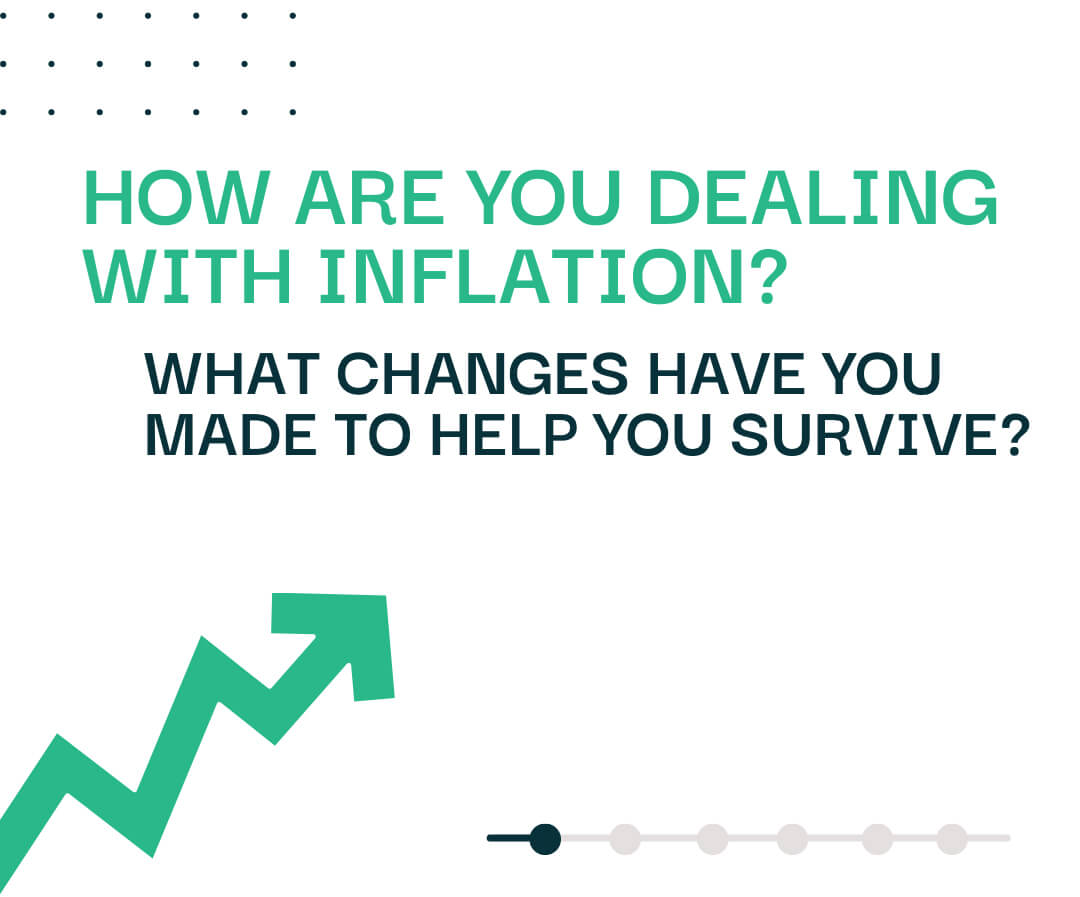
28 Dec How are you dealing with inflation? What changes have you made to help you survive?
Over the course of 2022, we have seen inflation rise to levels not observed for decades. A mix of post-covid stimulus packages, energy supply issues due to geopolitical issues in Eastern Europe, and other factors has caused prices to skyrocket. Even more worryingly, pay rises offered by employers to offset inflation are often not enough to keep up with inflationary pressures, according to a recent article by CNBC.
As a result, many people are currently seeing a decrease, and sometimes a significant one, in their real income. This means that the number of goods and services you can afford decreases when prices rise faster than your income.
In this scenario, you have to decide whether you want to adjust to inflation by cutting costs or looking for ways to increase your nominal income so that your real one doesn’t decrease.
On top of that, you may have to take action to shield your savings and investments from inflationary pressures.

Are You Changing Your Monthly Budget?
Adjusting to rising prices by cutting costs requires you to analyze your current spending patterns, prioritize your expenses and decide which ones to sacrifice (and in what amount).
If you have already divided your expenses into needs and wants, you already know which expenses are essential and which aren’t.
Obviously, you can’t cut costs like basic health insurance premiums, heating, transportation, essential groceries, and debt repayments. Therefore, your wants (non-essential expenses) are the primary candidate when it comes to trimming expenses. For this purpose, it’s helpful to tell fixed wants from variable wants.
Typically, fixed months are monthly bills for which the amount usually doesn’t change over time. Examples are a gym subscription, an internet streaming service’s price, or a club membership fee. In contrast, variable wants are expenses that vary depending on your monthly level of consumption. Dining out with friends, taking a short weekend trip, and non-essential clothes are some of the primary examples.
Can you lower the amount you spend on variable wants without sacrificing them entirely? That’s a great strategy to adjust to inflation while minimizing the impact on your quality of life.
As for fixed wants, providers may offer cheaper plans that allow you to continue to access that service at a lower price. If this option is not available, try to determine which fixed expenses are the most expendable. Do you value a streaming music service as much as your SPA subscription? Is your monthly sports magazine as important as your Spanish language class or French cooking course?
Have You Asked Your Boss for a Raise? Are You Looking for a Better Paying Job?
As we mentioned earlier, most companies are taking action to increase their workforce’s salary and minimize the impact of inflation on their real income.
If the pay rise offered by your company is not enough, you can schedule a meeting with your superiors and ask them for a further increase. Explain how inflation is making your day-to-day life difficult, especially if you have significant debt to repay, and how the additional stress resulting from economic hardship could negatively affect your performance at work.
Another option is to look for a job that pays a higher salary than your current one. Blow the dust off your resume, and add the experience you have accumulated and the skills you have developed since you last applied for a job. Nowadays, you also have an excellent availability of free or cheap resume-building apps and online services that can make your job application shine even brighter. Remember that consistency is key when looking for a new job, so don’t give up if you don’t get an interview appointment immediately.
Are You Considering a Part-Time Job or Side Hustle?
If you don’t want to leave your current job because of the stability it provides, looking for a part-time job is another way to complement your income.
This may come in the form of an employment contract or a freelancer gig. Nowadays, numerous websites and apps allow self-employed people to offer their services directly to potential clients. These range from general platforms like Fiverr, Freelancer.com, or Upwork, where you can offer a wide range of services (such as photo editing, content writing, translations, and web development) to apps designed for specific categories of self-employed people, like drivers, delivery riders, and home cleaners.

Are You Shielding Your Savings and Investments?
Reviewing your portfolio is another wise move during inflationary periods. As the real value of each dollar tends to decrease during inflation, keeping your money in assets that tend to perform well in these times is a good strategy to preserve your current purchasing power. Assets that usually provide a hedge against inflation include gold, other precious metals, treasury inflation-protected securities, ETFs tied to commodity indexes, and rent-generating real estate.
Are you undecided about which anti-inflation strategy to pursue? Would you rather use a combination of them? Let us know so we can provide you with the proper guidance and tips to weather the storm like a pro.

